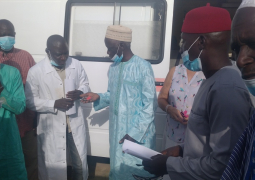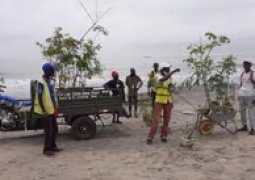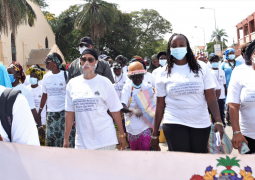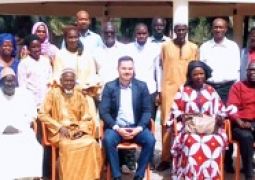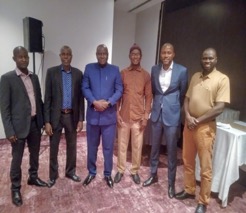
The activity, funded by the Arab Bank for Economic Development in Africa (BADEA), was held from the 16 to the 23 of October in Dakar, Senegal.
The week-long event brought together experts from Burkina Faso, The Gambia, Togo, and Senegal with a view to strengthening Disaster Risk Management (DRM) capacities and fostering regional collaboration in mitigating climate-related disasters.
The workshop, held as part of the ARC-BADEA project's second phase, focused on peer-to-peer knowledge exchange, the use of ARC's drought risk models, and Africa Risk-view software for seasonal monitoring. It also introduced participants to gender-sensitive approaches to disaster risk financing (DRF).
In her welcome Address, The Africa Risk Group Director General, Madam Eve Grace highlighted the need for Gender-Responsive Interventions, noting that Climate-driven disasters disproportionately affect women and vulnerable populations.
The workshop, she said, is critical for ensuring that gender equality remains at the forefront of disaster risk management strategies.
Mawdo Amadou Jallow, ARC government coordinator of The Gambia, said: “The Gambia as a country through the ARC was able to enhance the capacities of member TWG members to customize risk profiles using the Africa RiskView platform, improving their ability to track and manage climate risks.”
The introduction of the Gender Transformative Fund, he added will also consolidate the significant step taken towards gender mainstreaming in disaster management.
The Executive Director of the NDMA, Sanna A. Dahaba, emphasised the urgency of addressing climate change, saying: “The growing risks posed by extreme weather events like droughts and floods, will disproportionately impact vulnerable communities.”
He lauded the ARC-BADEA project for its timely intervention and for promoting gender-responsive disaster risk financing.
Dahaba further emphasised the positive impact of ARC’s Africa RiskView platform in The Gambia, adding: “This has significantly enhanced the country’s capacity to monitor and respond to droughts. The tool has allowed the country to create customized risk profiles, boosting national resilience.”
The NDMA boss also underscored the importance of integrating gender considerations into disaster risk management, further claiming: “The newly introduced Gender Transformative Fund as a vital step in ensuring that women and children, who are often the most affected by disasters, are empowered and protected.”
He reaffirmed NDMA’s commitment to collaborating with ARC, BADEA, and regional partners in order to enhance inclusive disaster management systems across the region, while emphasising the need for continued knowledge sharing to build a safer, more resilient future for all.


